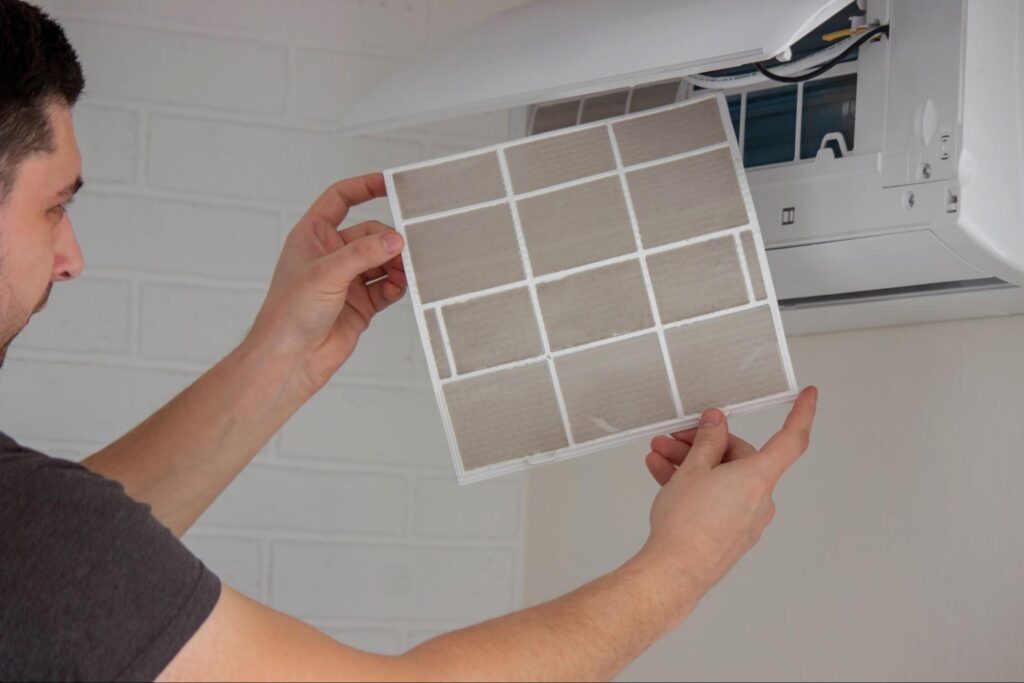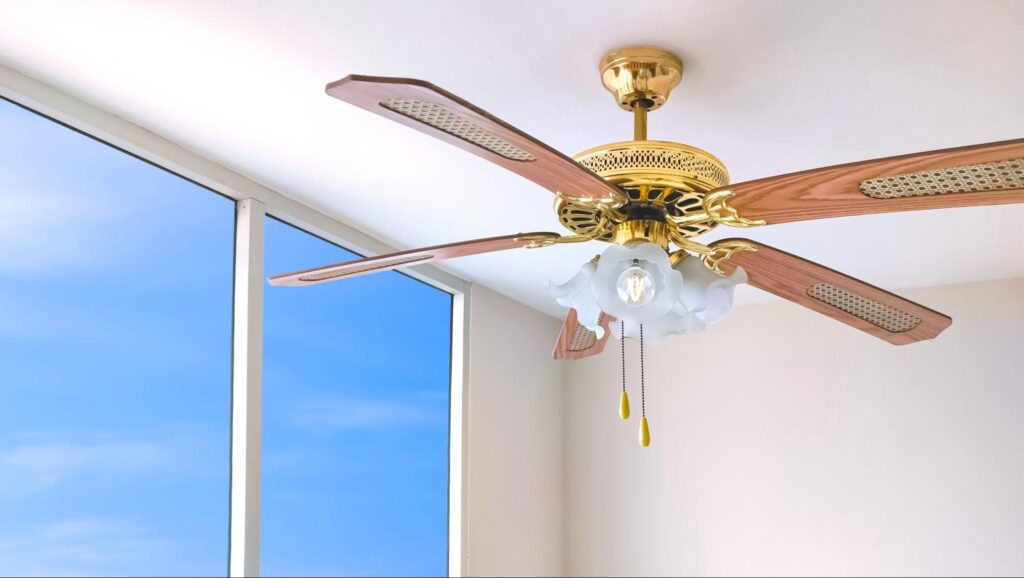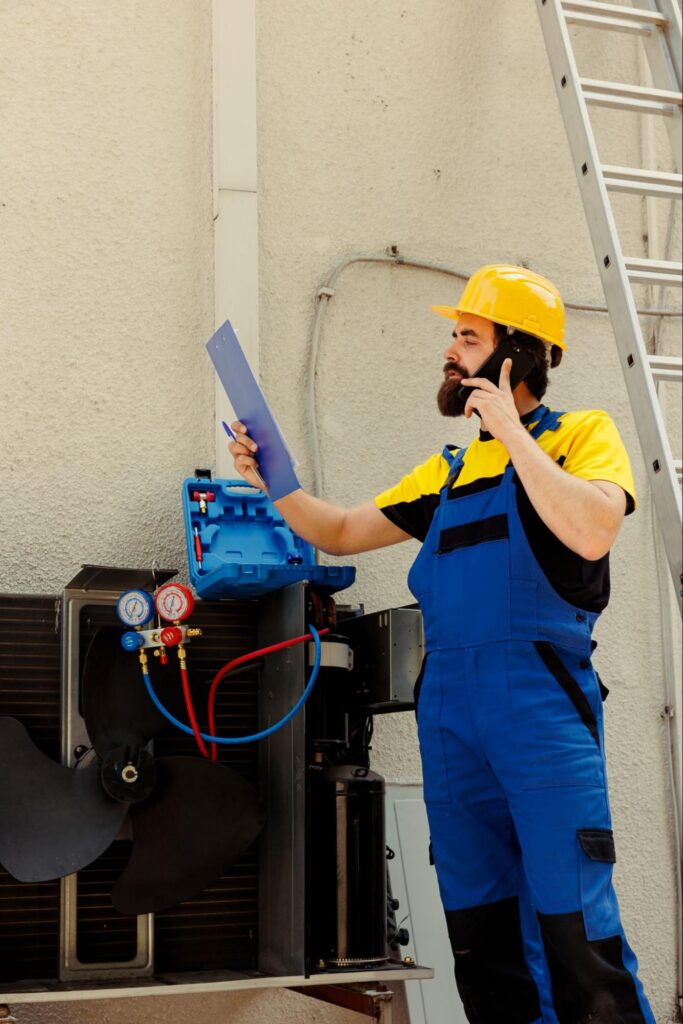Are soaring utility bills eating into your monthly budget? HVAC energy efficiency lets homeowners and commercial property owners lower operating costs while maintaining optimal indoor comfort. In this guide, you’ll discover what efficiency really means, how to measure it with SEER, EER, and HSPF ratings, and why Anchorville’s climate makes targeted HVAC strategies essential. We’ll cover practical DIY maintenance, when to bring in professionals, local rebates in Michigan, commercial building tactics, top upgrade options, and smart thermostat integrations—all aimed at maximizing savings and extending equipment life.
What Is HVAC Energy Efficiency and Why Does It Matter?
HVAC energy efficiency measures how effectively heating, ventilation, and air conditioning systems convert energy into climate control, reducing waste and utility expenses. Efficient systems consume less power for the same comfort, translating into cost savings and lower carbon emissions. For example, upgrading to a unit with a higher SEER rating can cut cooling bills by up to 30 percent, setting the stage for targeted DIY and professional improvements.
How Does HVAC Energy Efficiency Impact Your Home and Budget?
HVAC efficiency directly influences your energy consumption and monthly expenses by determining how much electricity or fuel is needed to heat or cool your space. High-efficiency operations trim peak load demands, smooth temperature swings, and extend equipment lifespan. Homeowners often see a 10–30 percent reduction in annual heating and cooling costs, enabling household budgets to reallocate funds toward other priorities and disaster-prevention upgrades.
What Are SEER, EER, and HSPF Ratings and How Do They Affect Efficiency?
SEER (Seasonal Energy Efficiency Ratio), EER (Energy Efficiency Ratio) and HSPF (Heating Seasonal Performance Factor) quantify HVAC performance under standard test conditions. Before comparing models, review this chart of key efficiency metrics:
| Rating | Definition | Typical Range |
| SEER | Cooling output divided by energy input | 13–26 (higher is better) |
| EER | Instantaneous cooling efficiency at 95°F | 8–12 |
| HSPF | Heating output divided by energy input | 7–13 |
These ratios guide equipment selection, with higher numbers indicating lower energy consumption. Understanding ratings informs upgrade decisions and aligns system performance with Atlanta’s seasonal demands.
What Are the Top DIY HVAC Energy Saving Tips for Homeowners?
Homeowners can capture immediate savings by adopting preventive maintenance and simple upgrades that optimize airflow and reduce strain on HVAC components. Regular upkeep preserves system efficiency and delays expensive replacements, empowering you to maintain lower operating costs year-round.
How Often Should You Change Your HVAC Air Filter for Best Efficiency?

Changing your HVAC air filter every 1–3 months prevents dust buildup, maintains proper airflow, and safeguards indoor air quality. A clogged filter forces your system to work harder, increasing energy consumption by up to 15 percent. By replacing or cleaning filters seasonally, you promote unobstructed circulation and consistent comfort.
How Can You Optimize Thermostat Settings for Maximum Energy Savings?
Setting thermostats to 78°F in summer and 68°F in winter when you are home balances comfort with savings, while raising or lowering by 7–10°F during absences can yield up to 10 percent annual savings. Programmable and smart thermostats learn your schedule, adjust temperatures automatically, and provide energy reports—bridging the gap between manual control and system intelligence.
Why Is Sealing Ductwork Important to Prevent Energy Loss?
Sealing duct leaks with mastic or foil tape eliminates up to 30 percent of conditioned air loss, preventing cooled or heated air from escaping into unoccupied spaces. Properly sealed ducts maintain design airflow rates and reduce cycling frequency, cutting energy waste and enhancing occupant comfort across your home.
How Does Improving Home Insulation Reduce HVAC Energy Consumption?
Upgrading attic, wall, and crawlspace insulation strengthens your home’s thermal envelope, resisting heat transfer in summer and preventing heat escape in winter. Effective insulation reduces HVAC runtime by stabilizing indoor temperatures and limiting temperature drift, which directly reduces energy bills and extends equipment life.
Can Using Ceiling Fans Help Lower HVAC Energy Use?

Ceiling fans circulate air to enhance perceived cooling by up to 4°F, allowing you to raise thermostat settings without sacrificing comfort. In winter, reversing fan direction distributes warm air near the ceiling evenly, reducing heating demands. Fans consume minimal electricity compared to air conditioners, making them an efficient supplemental solution.
What Are the Benefits of Regular Professional HVAC Tune-Ups?
Professional tune-ups include coil cleaning, refrigerant level checks, safety inspections, and electrical component tests, which can boost efficiency by 5–15 percent, prevent breakdowns, and maintain manufacturer warranties.
How Do Energy Audits Help Identify HVAC Efficiency Improvements?
A home energy audit employs blower-door tests, infrared imaging, and duct leakage assessments to quantify energy losses. Auditors pinpoint insulation gaps, ductwork leaks, and inefficient equipment, then prioritize corrective measures. This comprehensive evaluation guides investment decisions and delivers a clear roadmap for targeted HVAC enhancements.
What Are the Advantages of Upgrading to High-Efficiency Systems Like Heat Pumps?
High-efficiency heat pumps deliver dual heating and cooling with minimal electricity by transferring heat instead of generating it. Modern air-source heat pumps can reduce heating electricity use by up to 75 percent compared to electric resistance systems, while geothermal models offer even greater efficiency. Upgrading yields substantial annual savings and can qualify for Michigan-specific energy rebates.
When Is HVAC Repair Necessary to Maintain Energy Efficiency?
HVAC repair becomes essential when system malfunctions compromise efficiency, such as refrigerant leaks, damaged compressors, or failed blower motors. Addressing issues promptly restores performance and prevents energy spikes. For reliable solutions, schedule professional HVAC repair services with certified technicians who specialize in advanced diagnostics and component replacements.
How Does ENERGY STAR Certification Help Choose Efficient HVAC Products?
ENERGY STAR certification ensures equipment meets rigorous efficiency and performance standards established by the U.S. Environmental Protection Agency. Certified HVAC units deliver superior SEER and HSPF ratings, verified capacity and quality controls, offering peace of mind in product selection and rebate eligibility.
Where Can You Find Trusted HVAC Contractors and Services Near You?
Anchorville residents can turn to local licensed HVAC professionals familiar with Michigan’s climate and energy standards. Look for certified experts endorsed by ENERGY STAR, the Michigan Department of Licensing and Regulatory Affairs, or trusted neighbor referrals to ensure quality installations and service.
How Can Commercial Property Owners Maximize HVAC Energy Efficiency?
Commercial buildings require sophisticated energy management strategies to control peak demand charges and optimize large-scale HVAC systems. Implementing specialized measures drives tenant satisfaction and enhances asset value.
What Are Key HVAC Energy Management Strategies for Commercial Buildings?
Commercial properties benefit from building automation systems (BAS) that integrate scheduling, variable-speed drives, and demand response controls to reduce energy consumption and increase property value. Implementing economizers, chilled-beam systems, and energy recovery ventilators further reduces mechanical cooling loads and supports sustainable certifications.
How Do HVAC Efficiency Improvements Increase Commercial Property Value?
Energy savings translate into higher net operating income (NOI) and improved capitalization rates, boosting property valuations. Prospective tenants prioritize green certifications and lower utility overhead, so efficient HVAC systems can command premium rents and reduce vacancy periods.
What Are Common Barriers to Commercial HVAC Efficiency and How to Overcome Them?
Legacy systems, budget constraints, and split incentives often impede upgrades. Overcome these obstacles with performance contracts, energy service agreements, and phased retrofit plans that spread costs over time while delivering guaranteed savings.
How Do Heat Pumps Compare to Traditional Heating and Cooling Systems?
Heat pumps transfer heat instead of generating it, offering up to 300 percent efficiency compared to electric resistance heating and matching or exceeding furnace performance in mild climates.
What Role Do Eco-Friendly Refrigerants Play in HVAC Efficiency?
Next-generation refrigerants like R-32 and R-454B have lower global warming potential (GWP) and improved thermodynamic properties, enhancing heat transfer and reducing compressor energy draw. Transitioning to eco-friendly refrigerants can improve cooling efficiency by 5–10 percent while meeting regulatory mandates.
How Important Is Choosing the Right SEER Rating for Your HVAC Unit?
Selecting a unit with an appropriate SEER rating balances upfront cost with lifetime savings. In Anchorville’s climate, a SEER rating of 16–20 often provides the best payback period, ensuring cooling loads are handled efficiently without excessive equipment investment.
What Are the Long-Term Cost Savings of Energy-Efficient HVAC Upgrades?
Investments in high-efficiency systems typically yield payback periods of 3–7 years through reduced energy bills, lower maintenance costs, and extended equipment lifespan. Cumulative savings over 15–20 years can exceed 30 percent of the initial investment, reinforcing the value of modern HVAC technology.
Get Smart About Your Energy Use!

Energy efficiency starts with small steps and smart upgrades. Whether you’re adjusting your thermostat habits or sealing up duct leaks, S&P Heating is here to help.
Contact us for a full home energy assessment, and let’s lower those bills together!
FAQ Section
Can smart thermostats actually lower energy bills?
Yes! Smart thermostats adapt to your schedule, reduce energy waste, and give you remote control over heating and cooling. They often pay for themselves within a year through lower utility bills—especially in climates with distinct seasons.
What’s the difference between a heat pump and a traditional HVAC system in terms of efficiency?
Heat pumps are incredibly efficient for moderate climates because they move heat instead of generating it. In colder regions, a hybrid system may be ideal to balance efficiency and performance year-round.
Legal Heat: What You Need to Know Next
Improving energy efficiency is great—but don’t forget about the rules. Discover the local legal must-knows in our next article:
👉 “Understanding Local Furnace Permit Requirements in New Baltimore, MI: A Complete Homeowner’s Guide”



